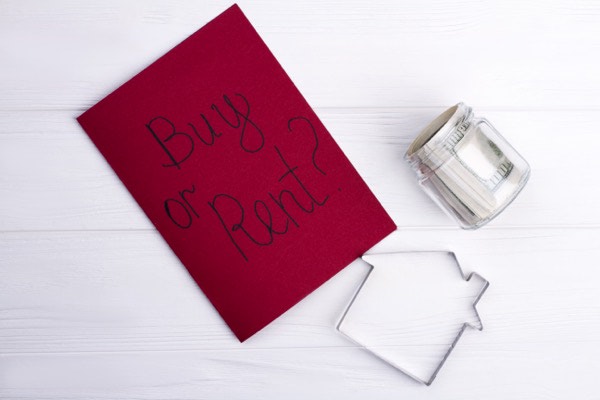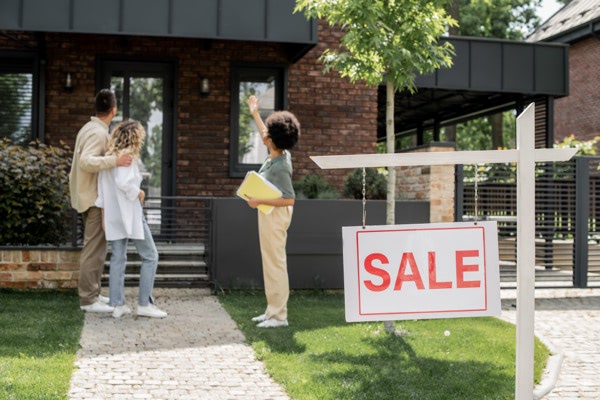Cottage opening weekend is almost here! In this post, we discuss how best to prepare your cottage for summer.

Are foreclosure properties good investments?
When you’re looking for your dream home, you’re likely thinking about what property type you want, the location you desire, and what price fits within your budget. You might not even consider whether or not the home is move-in ready, which brings us to foreclosure properties. If you came across a foreclosure, would you act on it? Even if foreclosure properties aren’t top-of-mind for you, you may now be wondering if they’re a good investment.
These properties are off the beaten path in terms of traditional market prices and competition. However, they have their own set of considerations. There are pros and cons to foreclosure properties, but which ones matter most?
What are foreclosure properties?
Foreclosure properties are when the owners are unable to make their mortgage payments and end up losing the home to the bank. Purchasing foreclosure properties is a last resort for both home owners and lenders. When a person’s mortgage starts to become trouble, lenders often try to resolve the issue with the owner to avoid the work that comes with a foreclosure.
If a property does go into foreclosure, one of two avenues is taken: Power of Sale or a Judicial Foreclosure. A Power of Sale limits court involvement and allows the lender to auction the home off. After all remaining fees are paid, the original borrower can keep any extra balance from the sale. Judicial Foreclosures involve the court and can be a lengthier process, but lenders are fully authorized to take ownership and sell the home. In these cases, it’s rare for the owner to receive gains from a sale.
This is where you, as a potential buyer, come in. Now that the property is up for sale, should you purchase it? As is always the case in real estate, there are both pros and cons of buying foreclosure properties.
Advantages of buying foreclosed properties
Lower prices
Foreclosed properties are almost always cheaper to buy than move-in ready homes. Why is that? First off, these properties are controlled and priced by the lender. The lender needs to price the home realistically to attract buyers, in order to get money back. They have no hope of selling a foreclosed property at above market value, so their prices aren’t nearly as inflated as homes in the regular market. These homes are often cheaper because they may have fallen into disrepair. If they’ve been uninhabited for a while, or the previous owners didn’t practice regular upkeep, they will reduce in market value and price.
High return on investment
If you buy a home for a super cheap price and fix it up so it’s livable, you might end up with a very high return on investment (ROI). ROI is all about comparing the cost of a home when you purchase it to its value if you decide to sell it. You can definitely increase the value of foreclosure properties, especially if they require some fixing up. Whether you use the property for renting out or for living in yourself, odds are, you will get a nice return on investment down the line.
Less competition
Most home owners don’t want to buy a foreclosed home. It will undeniably take more work to get it up to par, and many people just aren’t committed to that challenge. With the majority of the market competition focused on move-in ready homes, you will have fewer competitors in your way. Less competition means it will be much easier for you to buy foreclosed properties. The real estate market is very hot right now, so it might be a relief to enter a market where you aren’t battling for the property.
Disadvantages of buying foreclosed properties
Property issues
Arguably the biggest risk of buying a foreclosed property is what the state of the home might be in. Depending on when the previous owners moved out, and the kind of maintenance they did while living there, it’s possible you will see several issues. These could include problems with mold and rot, plumbing, infestations, leaks, and any other issue you can think of. When the old residents moved out, new ones may have moved in. It’s also possible residents couldn’t maintain the home while they were living there, leading to major maintenance issues. Occasionally, disgruntled owners also purposely damage the home before leaving it. In any case, foreclosure properties are far more likely to need some extra work than standard turnkey homes.
Lender barriers
It can also be challenging to secure a mortgage for a foreclosed home. You won’t be able to receive a loan for the purchase price of the home if the property appraises for below that value. Lenders aren’t going to approve a big mortgage for a home if they believe it has no value, or is even uninhabitable. As a buyer, you might have to use a private lender for this kind of loan. These lenders often have much higher interest rates in exchange for providing higher risk loans, so this is something to keep in mind.
Costs add up fast
Finally, even if you get an amazing deal on a foreclosed property, you’ll have to pay to make it livable again. Whatever issues the home has that made it affordable are now on you to fix. Things like roofing, plumbing, electricity, and aesthetic fixes add up fast and result in huge expenses on your end. Most of the time, these costs are also unavoidable because the fixes are necessary. While you can live in a home with a dent in a wall, you can’t live in a home with a sagging roof.
So, is it a good idea to buy foreclosure properties? If you’re able to secure the proper financing and fix the property up so it has a high value, it can end up being a great investment. However, it’s important not to forget all the work involved, the extra costs, and the trickier path you’ll have to take with lenders. If you are interested in foreclosure properties, it’s also essential to speak to a mortgage broker! Brokers can provide you with all the information and guidance you might need, and connect you with the appropriate lenders.
If you’re interested in buying a property or have questions about refinancing, reach out to us! Give us a call at Centum Home Lenders at 506-854-6847, or get in touch with us here.


